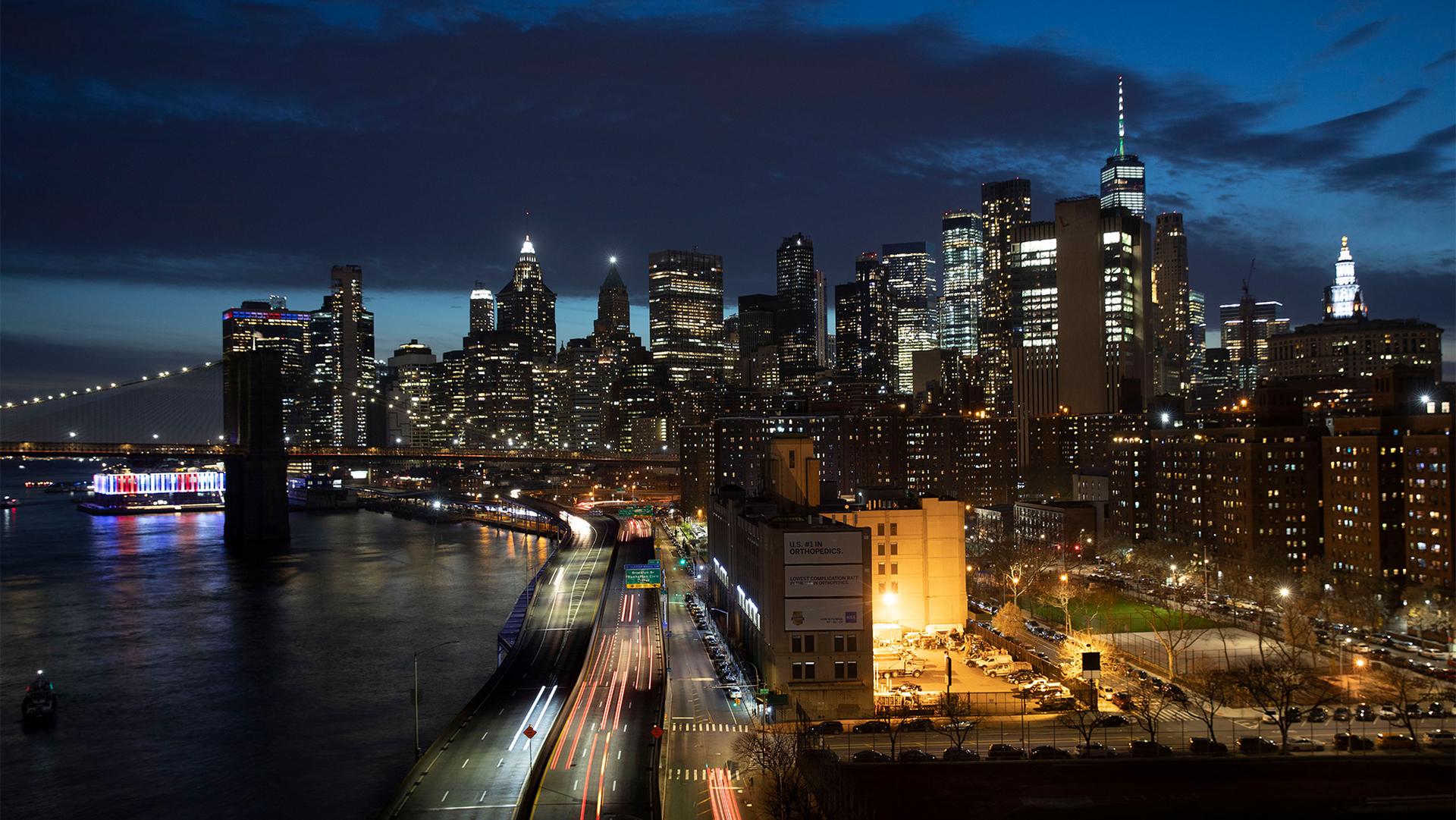Woojung Diana Park said she’s worried about the gentrification happening in her community in New York City. She lives in the Flushing neighborhood of Queens, where many residents are Chinese and Korean immigrants.
Those changes are pricing out many immigrant families from the neighborhood.
“You know, you just take a step back and you realize that this is actually happening in your community,” she said.
Related: Getting legal status opened the path to college for this Arizona immigrant family
Park is a 22-year-old college student. She’s also an immigrant community organizer at the Minkwon Center for Community Action, which serves the Korean and Asian communities in Queens. Park says she wishes she could do more, like vote for housing policies she supports — something she can’t do at the moment as an undocumented person.
But all that could change if a proposal passes, allowing non-US citizens living in New York City who have a green card or work permit to vote in local elections. The city council is set to make a decision next month. And if it’s approved, about 800,000 people will become eligible to vote.
That includes Park, who has a work permit through DACA — or the Deferred Action for Childhood Arrivals program. “I’m very excited,”she said. “I think there is that eagerness to speak up and really, really share our opinions.”
Related: As DACA fix remains elusive, Arizona ‘Dreamers’ focus on in-state tuition
Only a few cities in the US allow noncitizens to vote in either local or school board elections, including Takoma Park in Maryland, where noncitizens have been allowed to vote in municipal elections since 1992.
Takoma Mayor Kate Stewart and has supported the change from the start.
“It creates a much more welcoming and inclusive community and gets people involved in our process and strengthens our local government.”
“It engages people,” Stewart said. “It creates a much more welcoming and inclusive community and gets people involved in our process and strengthens our local government.”
Takoma Park doesn’t require people to show proof of legal status to vote, just proof that the person lives there. There’s been an added effort to ensure that noncitizen voters understand the rules, and that they should not be voting in state or federal elections, she added. So far, there haven’t been any problems.
Hiroshi Motomura, a professor at the University of California, Los Angeles, and a top immigration scholar, said that noncitizen voting existed about 200 years ago in the US. At one point, there were 40 states that allowed it.
“There is a long tradition of noncitizen voting,” he said. “But it’s a tradition that, in its heyday, was limited to white immigrants.”
Then immigration laws and patterns shifted. More people from Asia and Africa started arriving in the US, and voting rules started to change, Motomura said. Eventually non-US citizens could no longer cast a ballot.
Related: This Brooklyn pop-up school taps immigrants’ expertise — by making them teachers
“So, it’s not just a simple story that noncitizens voting once existed and went away. It went away when immigration became more open.”
In New York City, council member Ydanis Rodríguez, who is spearheading the new voting rules, said that in a city full of immigrants, noncitizen voting needs a comeback. At a recent city council hearing in September, he urged members to vote for the change.
“If [noncitizens] pay their taxes … then they should have a right to elect their local leaders.”
“This is not about doing a favor to immigrants by allowing them to vote,” Rodríguez said. “If they pay their taxes, as I did when I had a green card, then they should have a right to elect their local leaders.”
Others are still on the fence, like council member Kalman Yeger, who said he isn’t against noncitizen voting, but believes the state legislature should be the one to decide — not the city.
“The question is whether or not it will become law,” Yeger said. “It will not. Because it will be promptly thrown out, because we do not have the legal authority to pass it.”
Some legal experts disagree and say local governments do have the authority to make this call. Other critics say it might discourage legal residents from becoming citizens, or that it would be tough to provide enough oversight to prevent voter fraud.
Related: Proposed ‘public charge’ rule change stirs confusion over green card eligibility
Right now, the New York City plan is likely to pass. Even if the mayor vetoes it, council members can override it.
Theodore Moore, senior director of policy with the New York Immigration Coalition, is excited for the possible changes. His advocacy group represents immigrant and refugee organizations across the state.
“…I think we’re going to see more representation. And, quite frankly, that can only be a good thing.”
“So, I think we’re going to see more representation. And, quite frankly, that can only be a good thing,” Moore said.
Once that happens, he said, there could be a national movement.
“Those people, they’re going to look at New York City and be like, ‘New York City did it. They’ve implemented it. Let’s go be the next city.’”
The World is an independent newsroom. We’re not funded by billionaires; instead, we rely on readers and listeners like you. As a listener, you’re a crucial part of our team and our global community. Your support is vital to running our nonprofit newsroom, and we can’t do this work without you. Will you support The World with a gift today? Donations made between now and Dec. 31 will be matched 1:1. Thanks for investing in our work!
